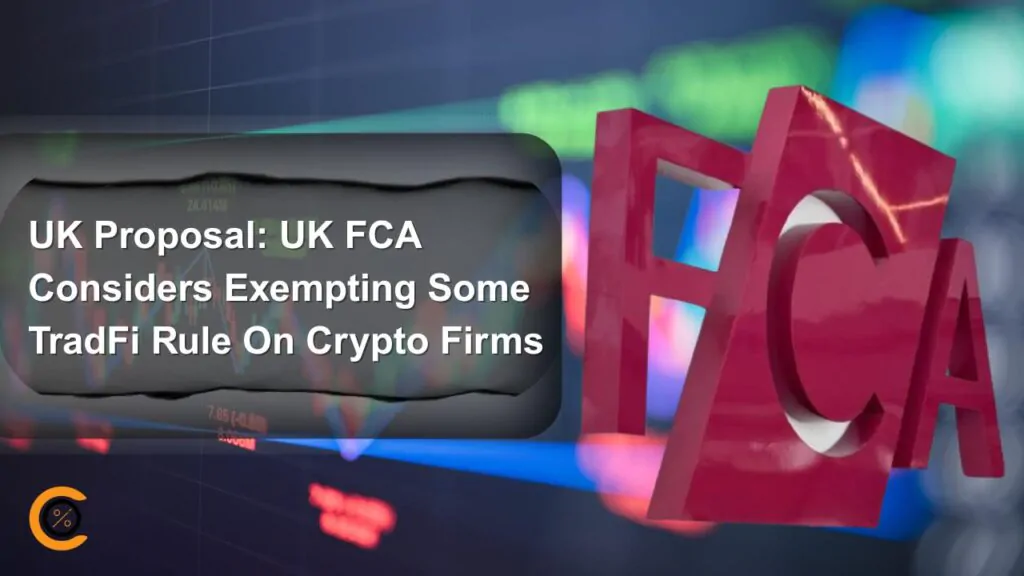- •FCA reviews crypto rules and considers exemptions from traditional finance regulations for crypto firms.
- •The aim is to promote innovation while protecting consumers in the crypto sector.
- •The UK and US are coordinating efforts to strengthen international crypto regulation.
The UK Financial Conduct Authority has launched a consultation paper in which it considers exempting some TradFi rules for crypto firms and examines how existing financial rules should apply to the crypto sector, setting out minimum standards while considering exemptions for the industry’s unique features.
FCA Reveals Major UK Crypto Rules
The UK Financial Conduct Authority (FCA) is exploring how traditional finance (TradFi) rules should apply to the crypto industry. In traditional firms such as banks and investment companies, strict regulations govern consumer protection, financial crime, governance, and complaint handling. However, the crypto industry operates differently, so the FCA is deciding whether some of these rules should be applied in the same way or adapted to fit the unique nature of digital assets.
A major point under review is the Consumer Duty rule, which requires financial companies to ensure they provide good services for consumers. The FCA is seeking feedback on whether this rule should also apply to crypto, given that crypto investing carries higher risks and operates differently from traditional products. The regulator is also requesting input on whether crypto-related complaints should be handled by the Financial Ombudsman Service (the UK’s official body for consumer disputes in finance).
The FCA aims to create a balanced crypto regulatory framework that promotes innovation and competitiveness while safeguarding consumers and building trust in the market. Feedback on the proposals is expected in October and November, with finalized rules for crypto firms scheduled for release in 2026.
The UK and The US Ties Improved Over Crypto Matters
The UK and the US are actively exploring ways to work more closely on crypto matters and digital asset regulations. The FCA’s engagement in international cooperation signals that crypto oversight is no longer solely a national issue but involves global coordination between major financial nations.
According to the Financial Times, a high-level discussion took place between the UK Chancellor, Rachel Reeves, and US Treasury Secretary, Scott Bessent. The talks focused on how both countries can align governance approaches and share information on crypto to ensure stability, reduce fraud, and protect consumers across borders. The discussion reportedly involved major crypto companies such as Coinbase, Circle, and Ripple, as well as traditional financial institutions like Bank of America, Barclays, and Citi. This highlights that regulators are considering the full ecosystem of crypto activity, bridging traditional finance and digital assets.
UK’s Crypto Firms Sustaining Future
The FCA’s consultation marks a major step toward creating a comprehensive regulatory framework for the crypto industry that balances innovation with consumer protection. Furthermore, the UK and the US are exploring aligned approaches to oversee digital assets and mitigate cross-border risks, providing crypto firms operating in both nations with a greater sense of security. All of this is expected to be finalized by 2026, following feedback collected in October and November 2025.







